Text
All of the presentations looked so fun and interesting! It made me wish I could see all the finished products. Aamir’s project looked great. It was about how crime films’ depictions of religion have shifted over time to reflect American society’s growing tendency towards individualism. My favorite part was how he tied in globalization as an explanation, because that argument felt so original and unique to me. I also think that he picked great films, The Godless Girl and Seven. I can’t wait to see how his project turns out. I was also super excited about Hannah’s project. For hers, she plans to make a Cards-Against-Humanity-style board game about vigilante justice. Her sample cards, “Judge Cards” and “Citizen Cards,” looked so cute, and this sounds like such a fun idea. She even included a little instructions pamphlet to explain her game, and it made it look even more official. My questions was about whose perspective the game would adopt—criminal or cop. I would totally play a game like this. One of my other favorite projects that I saw was Matt’s. His was sort of a choose your own path, sort of about vigilante justice, too. Basing his argument on Deadpool and Batman Dark Knight, he shows how different choices lead you through a circuit, increasing or decreasing your energy and using 1s and 0s. As a big fan of choose your own adventure games, I was particularly intrigued by this project. I loved the way he tied circuitry in to add another dimension to this project. I also would be excited to see Race’s finished short story, and I loved the premise of Alec’s paper, which was about crime films’ shifting views of women.
0 notes
Link
Coen brothers, Lessons About An Uncertainty Principle In Filmmaking.
1 note
·
View note
Text
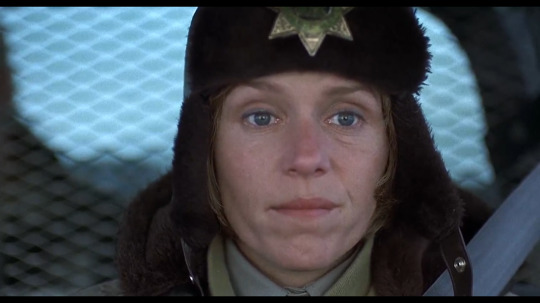
In terms of inversions in marriage and domesticity in Fargo like we were talking about in class, Marge and Norm’s relationship offers a reversal of the typical feminine and masculine roles. When Marge has to get up to go to the crime scene, Norm is the one who offers to make breakfast, while Marge tells him to stay in bed and sleep a little longer. Even in Jean and Jerry’s marriage, a possibly more traditional marriage, Jerry is always the one coming in the door with groceries. This film plays with the audience’s expectations of what constitutes a marriage and what role each spouse has to play. At the same time, it’s not a strict inversion, either. Marge is still pregnant, and still incorporates this fact into her identity. In this sense, Marge still keeps her connection to womanhood and motherhood. Accordingly, the film shows that these inversions don’t have to come at the expense of femininity; rather, Marge can keep her femininity and connections to it, while still being competent, rational, and in charge.
0 notes
Text
Today, I was reading a poem by Adrienne Rich, and I couldn’t help but be reminded of Thelma and Louise. It’s like she wrote it for them:
Twenty-One Love Poems, XIII
The rules break like a thermometer,
quicksilver spills across the charted systems,
we’re out in a country that has no language
no laws, we’re chasing the raven and the wren
through gorges unexplored since dawn
whatever we do together is pure invention
the maps they gave us were out of date
by years… we’re driving thought the desert
wondering if the water will hold out
the hallucinations turn to simple villages
the music on the radio comes clear—
neither Rosenkavalier nor Gotterdammerung
but a woman’s voice singing old songs
with new words, with a quiet bass, a flute
plucked and fingered by women outside the law.
Not only does it speak to the plot of Thelma and Louise—two women outlaws, in the run in the desert—but it evokes the feelings underlying the film, feelings of discovery and dissent. Like the subjects in the poem, Thelma and Louise are free to create their own rules, their own understandings of their positions within society and in relation to each other. They don’t fulfill strict roles and positions, but rather work in concert, listening to their own language and their own laws.
0 notes
Text
Thelma and Louise is one of my favorite movies of all time, and Callie Khouri says one of my favorite quotes about it. Callie Khouri, the director of Thelma and Louise, famously insisted the film doesn’t end in suicide. Instead, she says, “They flew away, out of this world and into the mass unconscious. Women who are completely free from all the shackles that restrain them have no place in this world… After all they went through, I didn’t want anybody to be able to touch them.” At least to her, Thelma and Louise escape. That we have to leave this type of happy ending up to subtext and interpretation is disheartening—it doesn’t change the fact that what we’re seeing onscreen are powerful women being taken down because of their power. At the same time, it’s nice to think about. It’s comforting to see them escape, and to be so exultant in their escape.
This quote reminds me of the ending of American Mary and how we’re supposed to interpret the death of the powerful, active female main character. On the one hand, Mary’s death seems like the ultimate punishment for her deviance. She exercises agency, and she’s killed for it. On the other hand, her death offers an escape. She’s about to be caught by the police, locked up, power taken away forever. This way, at least, she’s able to kill her murderer and sew herself back up without facing their consequences, maintaining a degree of power and dignity. Does this interpretation mean that death is the only way for strong women to preserve their power? Kind of dismal. For a female character with that much agency, there’s just no room for her. But, maybe, like Thelma and Louise, Mary doesn’t die, either. Maybe Mary makes it out alive, too, even if it’s only after the camera stops rolling.
And that’s not the only parallel to Thelma and Louise. In both films, these women don’t just get away with killing like other killers do; they have to be driven to their actions and murders as a part of their rape revenge. Women need to have a moral alibi.

1 note
·
View note
Photo
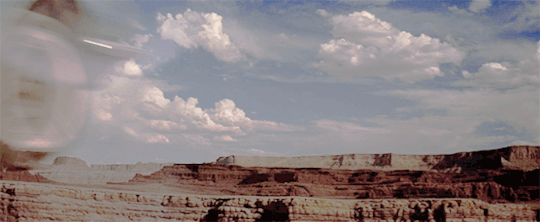

Actually, I said to Ridley, “I hope we’re not gonna shoot this and then you test it and then we end in Club Med. If I’m gonna play that part, I want to make sure that I know where it’s going”. And he said, “I can tell you that you will definitely die. But I’m not sure about Thelma. You may push her out of the car at the last minute”. — Susan Sarandon.
122 notes
·
View notes
Quote
You can’t do a movie without villains. You have to have something for the heroines or anti-heroines to be up against, and I wasn’t going to contrive some monstrous female, but even if this were the most men-bashing movie ever made—let all us women get guns and kill men—it wouldn’t even begin to make up for the 99% of all movies where the women are there to be caricatured as bimbos or to be skinned and decapitated. If men feel uncomfortable in the audience it is because they are identifying with the wrong character.
Callie Khouri, responding to claims that Thelma & Louise misrepresents men (via lotusdriving)
420 notes
·
View notes
Text
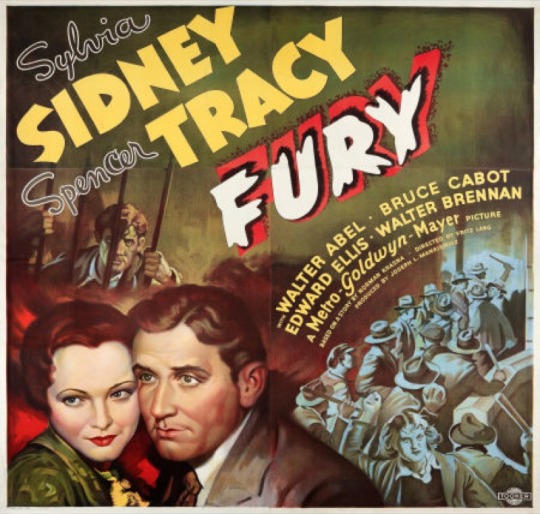
It’s interesting how, in Fury, the vigilantism is two-fold. The entire town is guilty. Not only are those who act and take part in the violence responsible, but so are the onlookers who facilitate the violence. The women’s gossip in the film acts as a form of social policing, a sort of vigilante justice in itself, in the way it passes judgment and assigns value to different indiscretions. In a way, the film is implicating us, the viewer, just as much, by suggesting that even passive viewers are complicit in the crime of lynching. We are both the executioners and Joe, victim and victimizer.
1 note
·
View note
Photo
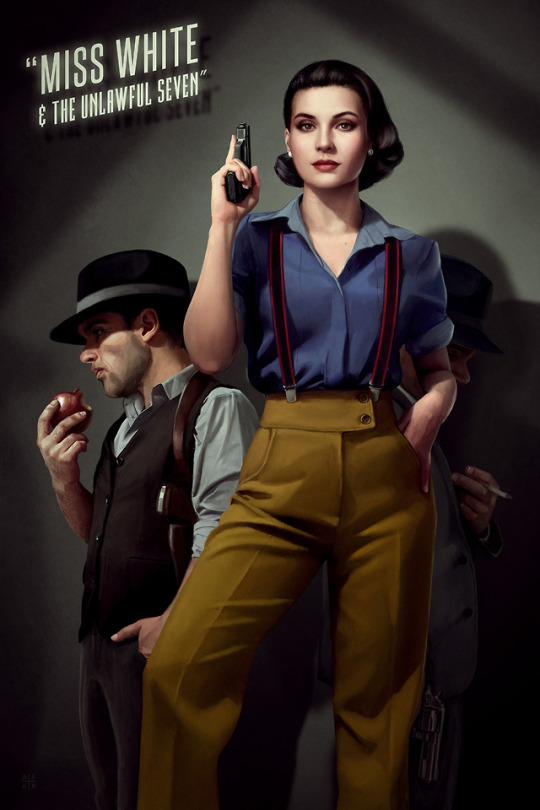
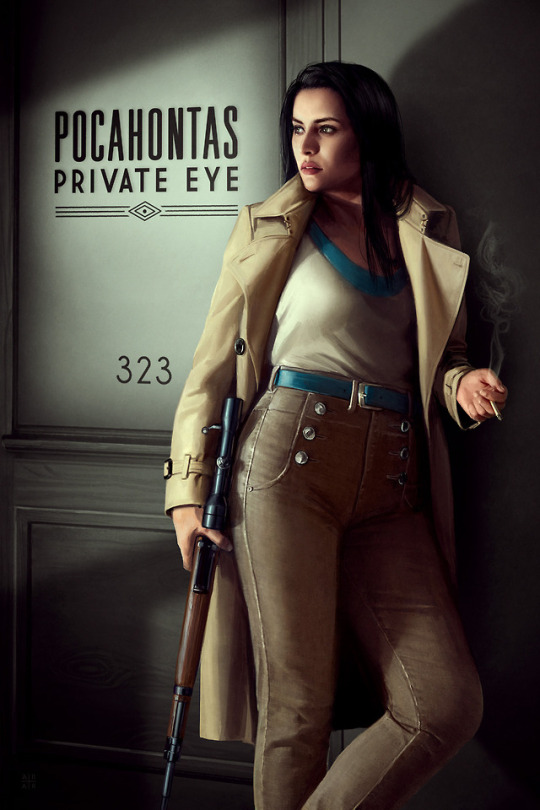
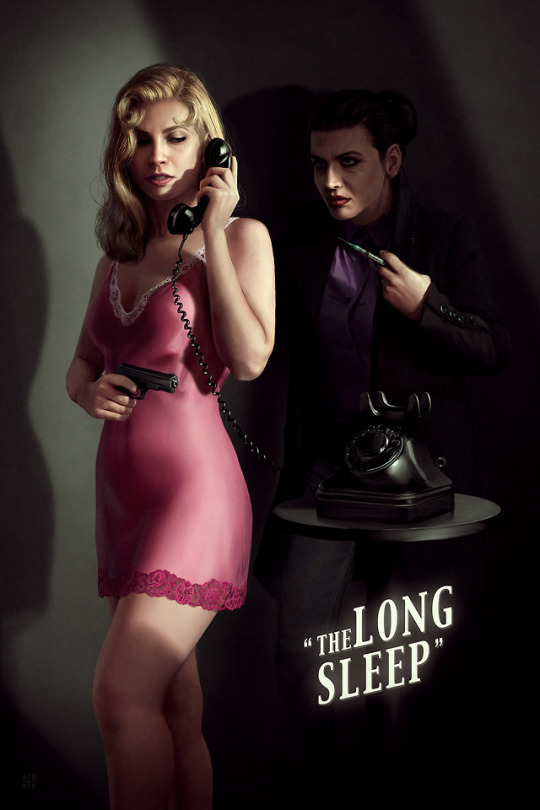
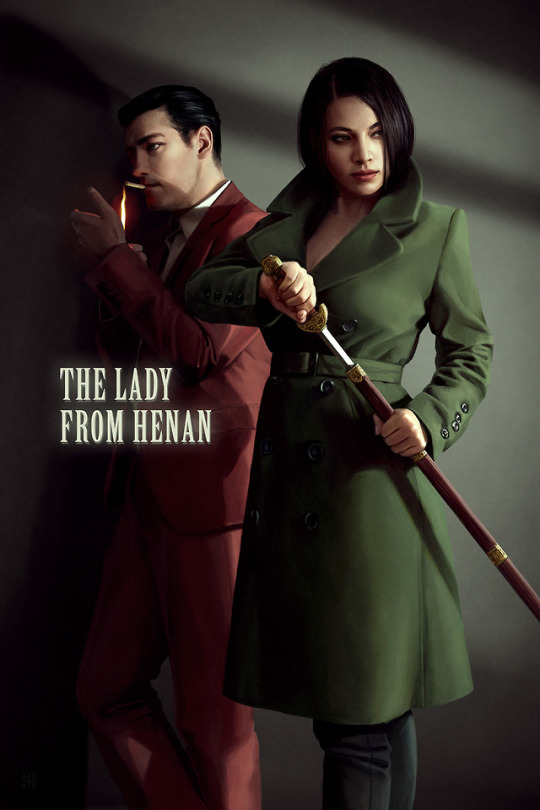
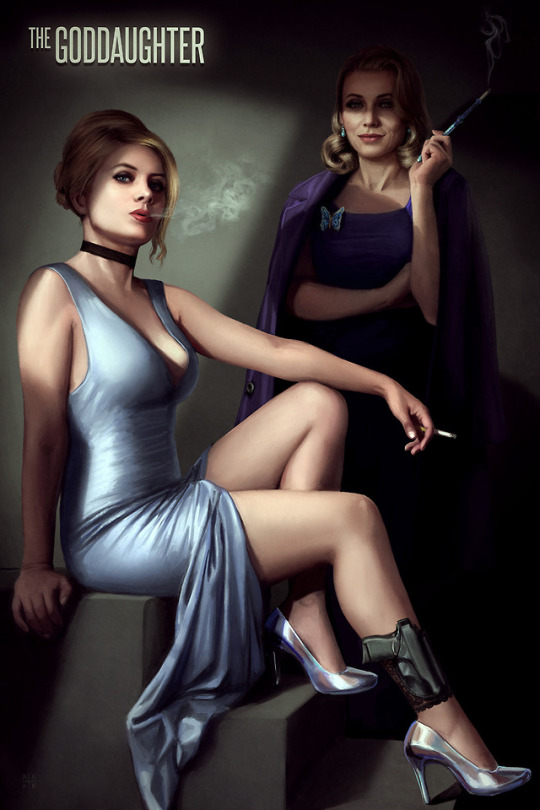
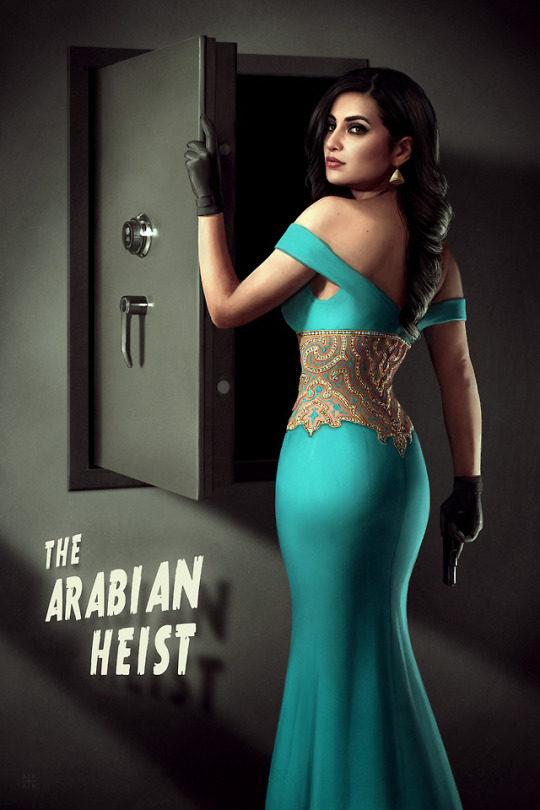


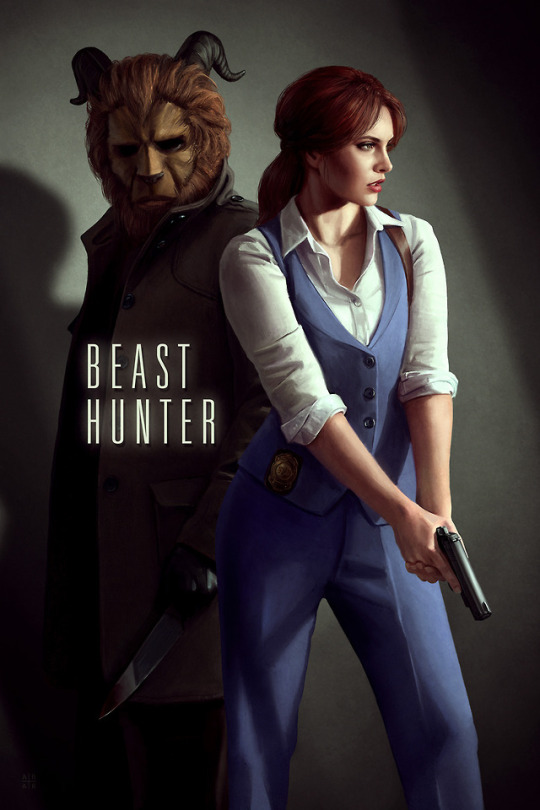
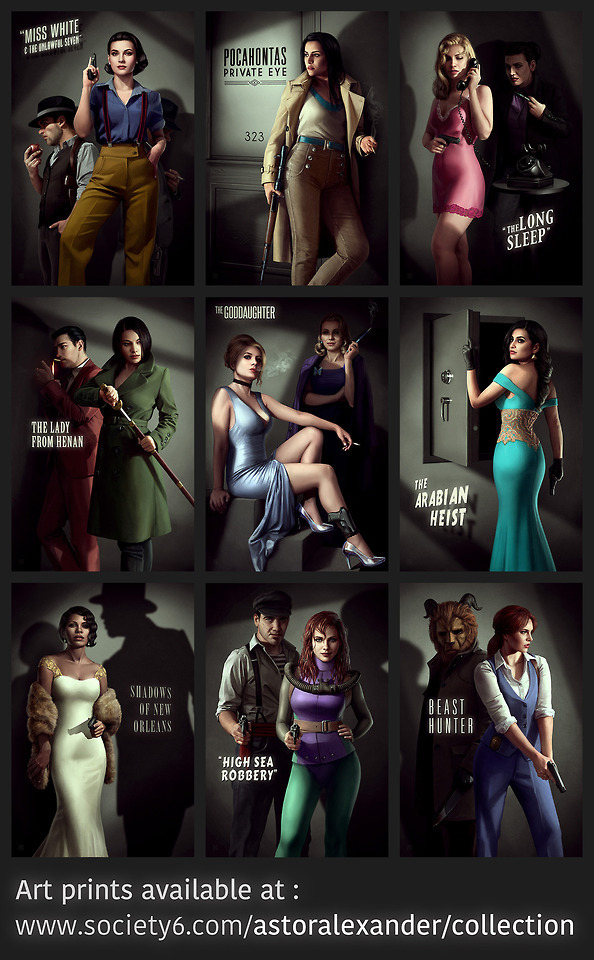
I call this set… “Noir Princesses”.
PRINTS HERE… https://bit.ly/2NqqOX7
269K notes
·
View notes
Text
Wolf of Wall Street Film Connections
One of the parts of Wolf of Wall Street I found most hilarious was when Belfort and friends were talking about throwing little people, then started chanting, “One of us—gooble gobble, gooble gobble.” Here, they reference the famous chant from Tod Browning’s Freaks, where little people welcome a newcomer to their circus family. I think this, first of all, highlights Belfort’s charisma as a (psychopathic) businessman by showing his cultural capital and, second, situates Belfort and his gang of conspirators as the “freaks” they are—people willing to exploit their own and others’ underlying perversities in order to turn a profit. Also I just loved that Scorsese included this, in general.
youtube
youtube
Although WoWS doesn’t make as direct a reference to American Psycho as it does to Freaks, it reminded me of Mary Harron’s film, nonetheless. DiCaprio’s voiceover has uncanny parallels with Christian Bale’s narration as Patrick Bateman. Both create an intimacy with the viewer, inviting us into their subjective, deviant perspectives. Between the cutthroat Wall Street life (I’m reminded of the business card scene) and the psychopathic lack of empathy of the main characters, the films offer striking parallels. And while one man may be an actual murderer and the other a white-collar criminal, they manage, somehow, to come across as equally psychopathic.
youtube
0 notes
Text
Challenge Post 13: Spoofing
Even though we haven’t gotten to it yet, I’m choosing Thelma and Louise for this post because I love it. In The Simpsons, Thelma and Louise earns not just a reference but a whole episode paying homage to the plot of Ridley Scott’s film. In “Marge on the Lam,” Marge gets increasingly close to her new friend, Ruth, who takes her to bars, clubs, and shows her how to shoot a pistol. The episode ends in a police chase, and the parody of Thelma and Louise is most evident in the climax. In this rendition, though, the women stop short from flying into the abyss, and it’s the men, Homer and Chief Wiggum, who go over the edge instead.
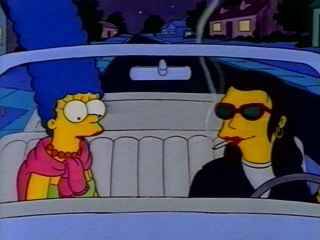
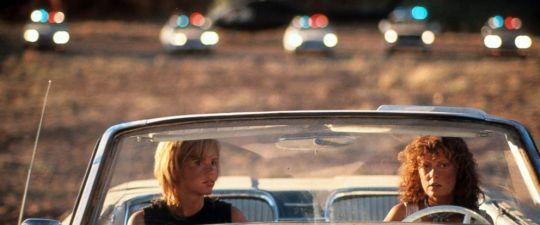
0 notes
Text
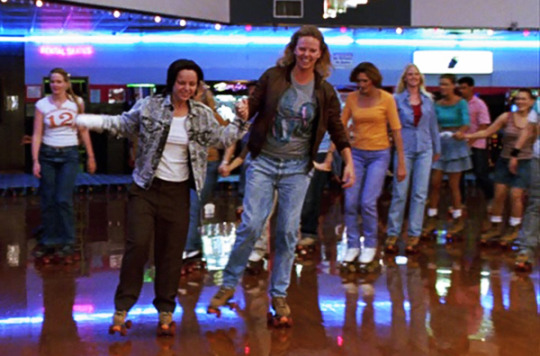
Throughout Monster, Wuornos expresses a deterministic view of her life. She insists she had no choice in either her killing or in the way her life ended up. In a way, the film aligns her story with an increasingly accepted narrative of sex workers—that even though, technically, they’re committing a crime, they have no say in the matter. A study by Julie Bindel, for example, compares sex workers to modern-day slaves, finding that “prostitution is rarely, if ever, a choice.” Instead, sex workers’ positions are compulsory, and their “profession” is one they are forced into. Wuornos articulates a similar understanding of her own subject position when she says, “Fuck, man, circumstance, that's exactly it, that's exactly it. You know I feel like I never even had a fucking choice.” The film suggests that although Wuornos may be culpable for her actions, she is not necessarily to blame for the climate that engendered them. Thomas reinforces and further normalizes her position by tying it to soldiers’ experiences in the war. He believes, “What you're feeling right now is just guilt, over something you had absolutely no control over. You know how many of us came back from the war? And almost killed ourselves because we felt exactly the same thing you do, right now.” She is as subject to the system as anyone else, and she finds herself trapped in the crossfire. Accordingly, although the film doesn’t excuse Wuornos’s actions, it culls sympathy for them, relating her crimes to those of sex workers and divesting her of a degree of her responsibility.
12 notes
·
View notes
Photo
love how this poster incorporates the mirror, like we talked about in class, and reflects the fragmentation of her identity
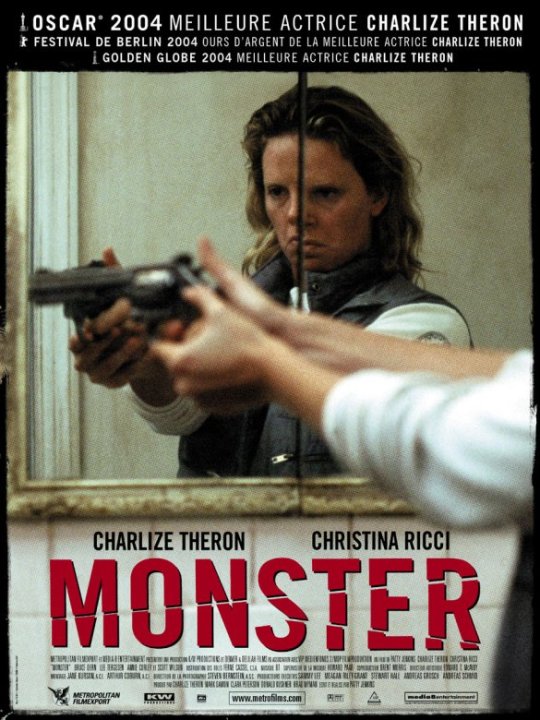
65 notes
·
View notes
Photo
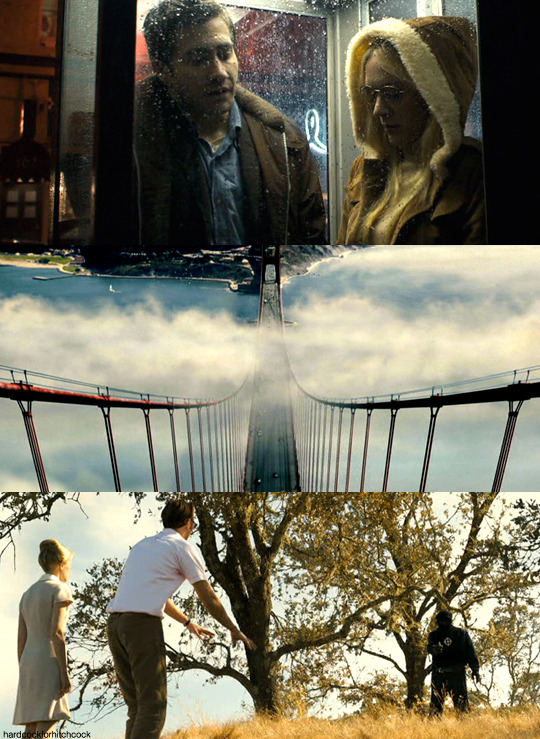

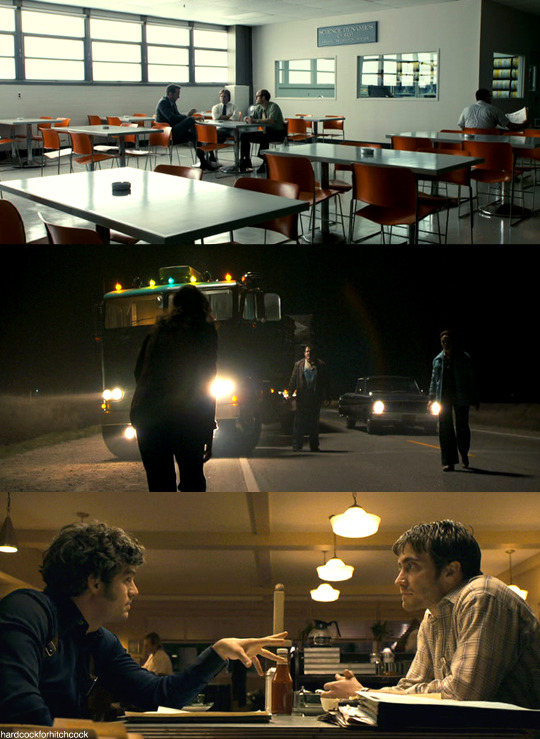
“I am not the Zodiac. And if I were, I certainly wouldn’t tell you.”
-Zodiac (2007)
814 notes
·
View notes
Photo
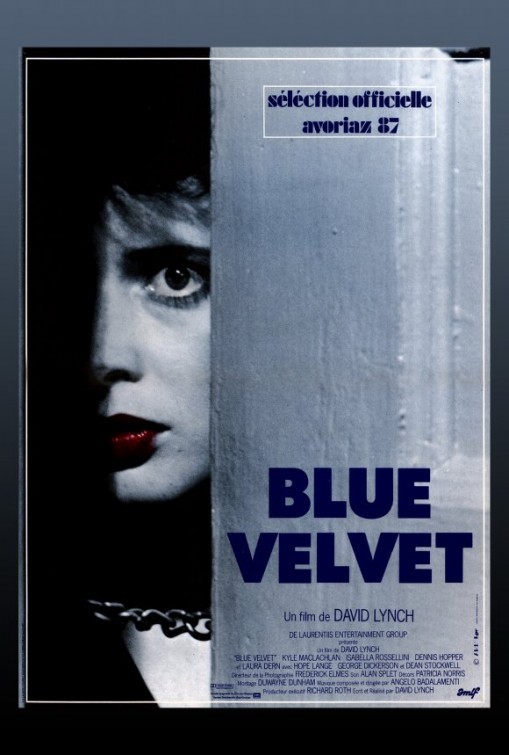
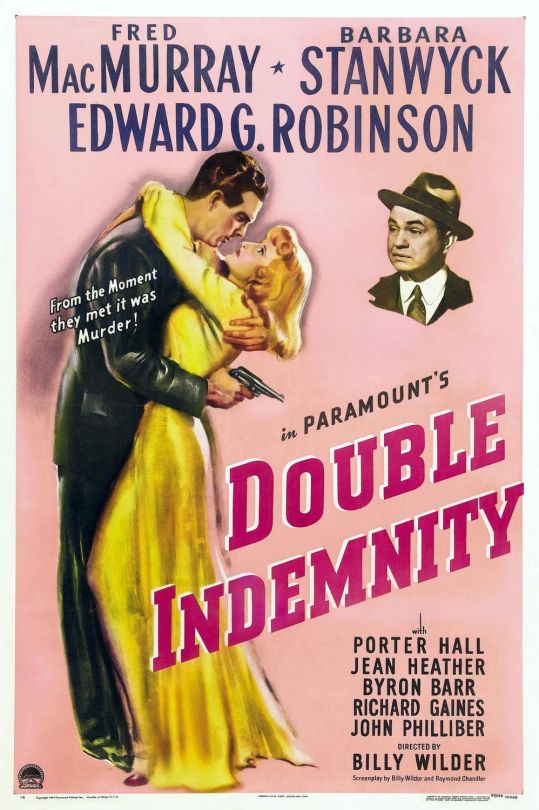
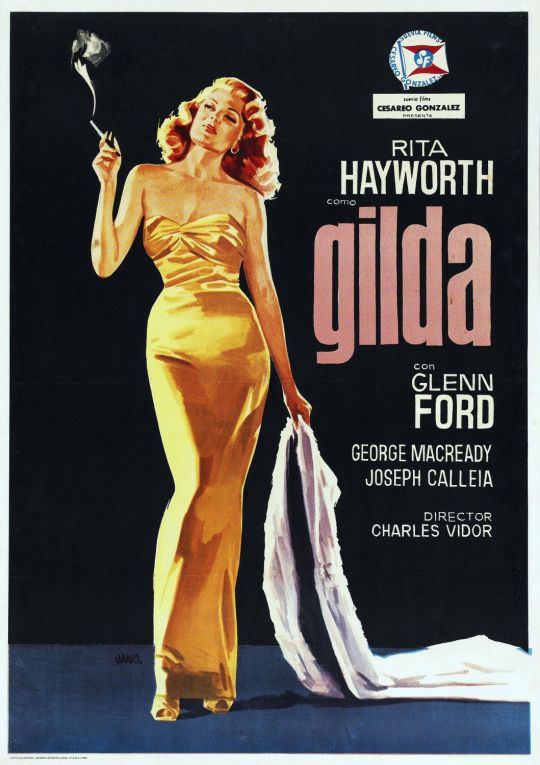
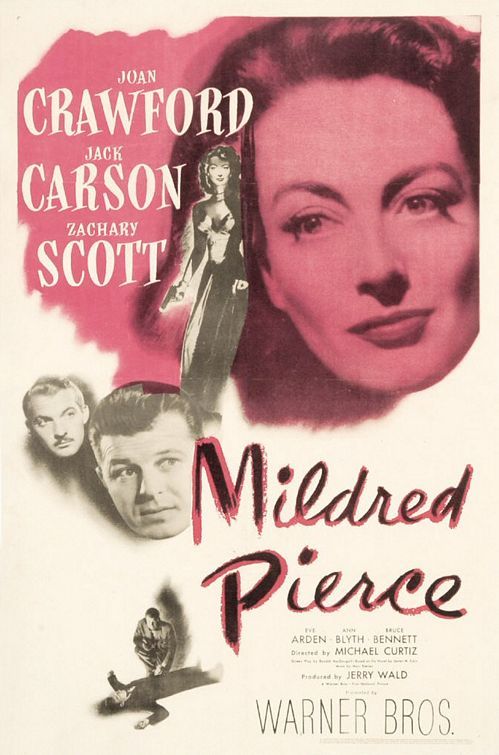
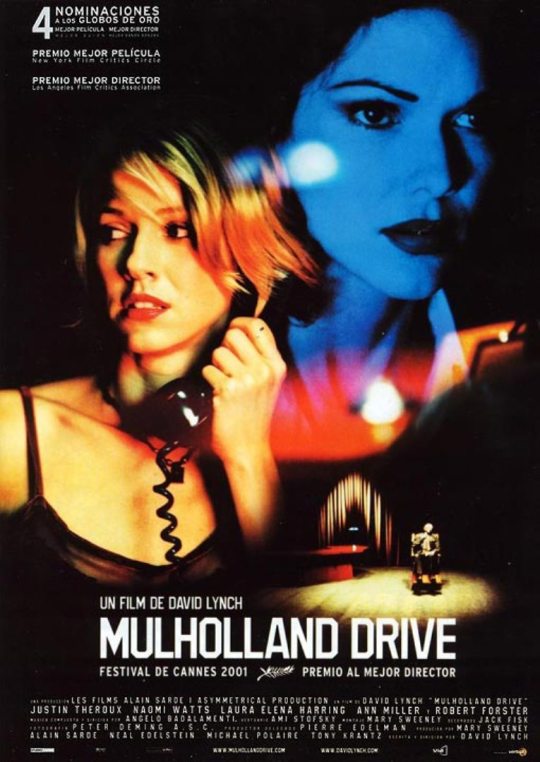

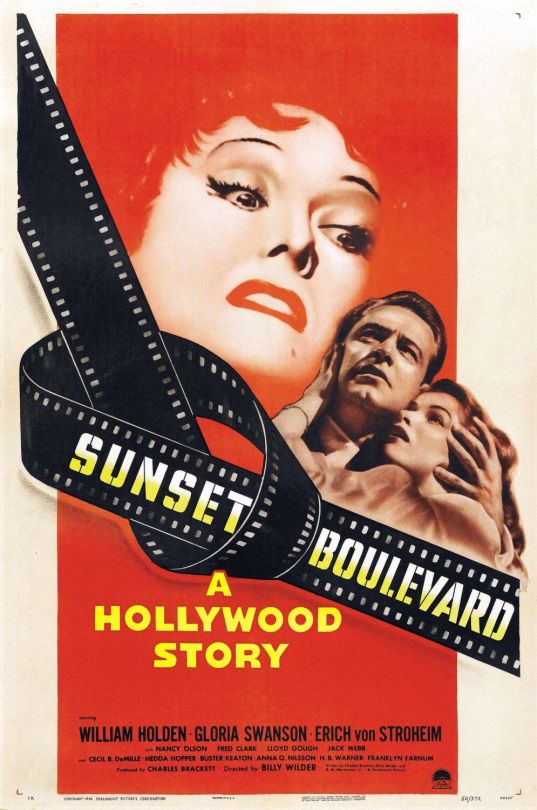
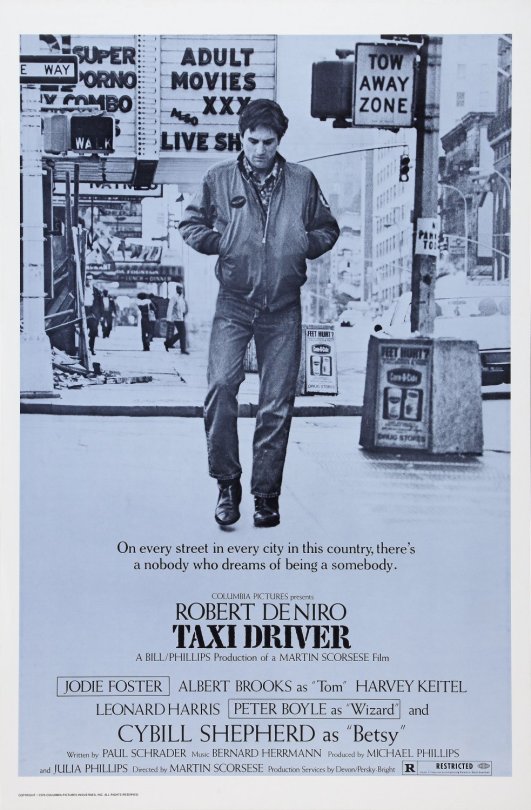
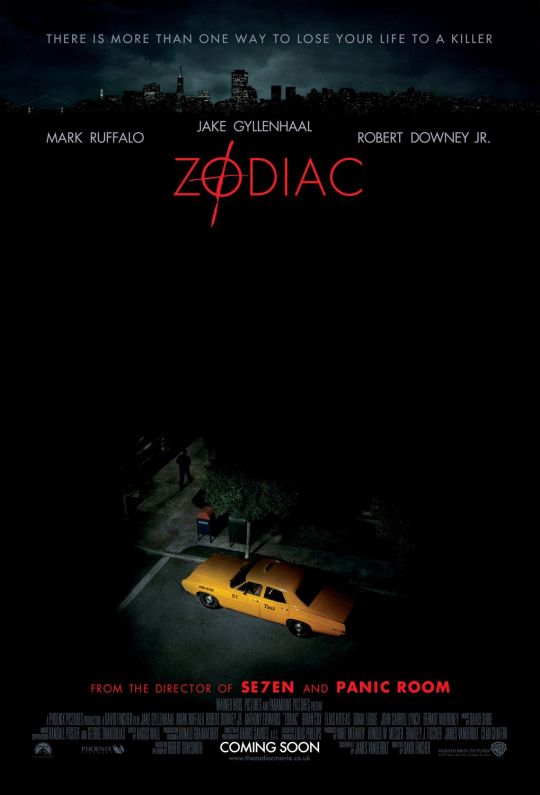
Favorite Films - Film Noir
Blue Velvet (1986, dir. David Lynch)
Double Indemnity (1944, dir. Billy Wilder)
Gilda (1946, dir. Charles Vidor)
Mildred Pierce (1945, dir Michael Curtiz)
Mulholland Drive (2001, dir. David Lynch)
Strangers on a Train (1951, dir. Alfred Hitchcock)
Sunset Boulevard (1950, dir. Billy Wilder)
Taxi Driver (1976, dir. Martin Scorsese)
Zodiac (2007, dir. David Fincher)
1K notes
·
View notes



